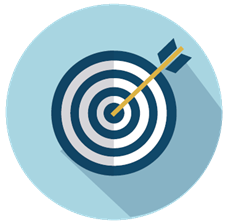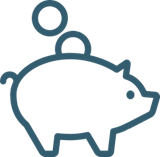
Resources:
- Federal Trade Commission’s website – Credit and Debt page
- Find housing counseling services on the U.S. Department of Housing and Urban Development (HUD) website or by calling 800-569-4287
Warning signs of too much debt
Are you in debt trouble? There are several warning signs that can help you learn when debt can become an issue. Read each item to learn the warning signs.
tips for dealing with debt
If you need help managing your debt, here are some tips.

DON’T GIVE UP
Dealing with debt is hard, but keep trying. It’s one of the most important things you can do for a better financial future. Create a spending plan to help you manage your money.
MORE TopICS
The Hands on Banking website has all of the materials you need to help you succeed financially. The following topics can help you get started on your financial education journey.



